
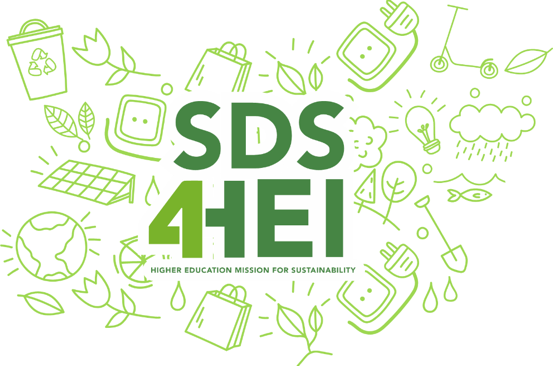

SUSTAINABLE DEVELOPMENT STRATEGIES FOR HIGHER EDUCATION INSTITUTIONS (SDS4HEI)
The SDS4HEI project is funded by the EU program Erasmus+ and coordinated by the Institute for Work and Technology (IAT) that aims to embed sustainable development goals as a core component within Higher Education Institutes across Europe. The project that started on September 1, 2022, has a duration of 30 months. SDS4HEI will be the first project to take a systemic, strategic, whole of campus approach, mirroring the ‘whole-of-government’ and ‘whole-of-society’ approaches that world leaders now say is needed to tackle challenges such as pandemics, migration and climate change.
PROJECT PARTNERS
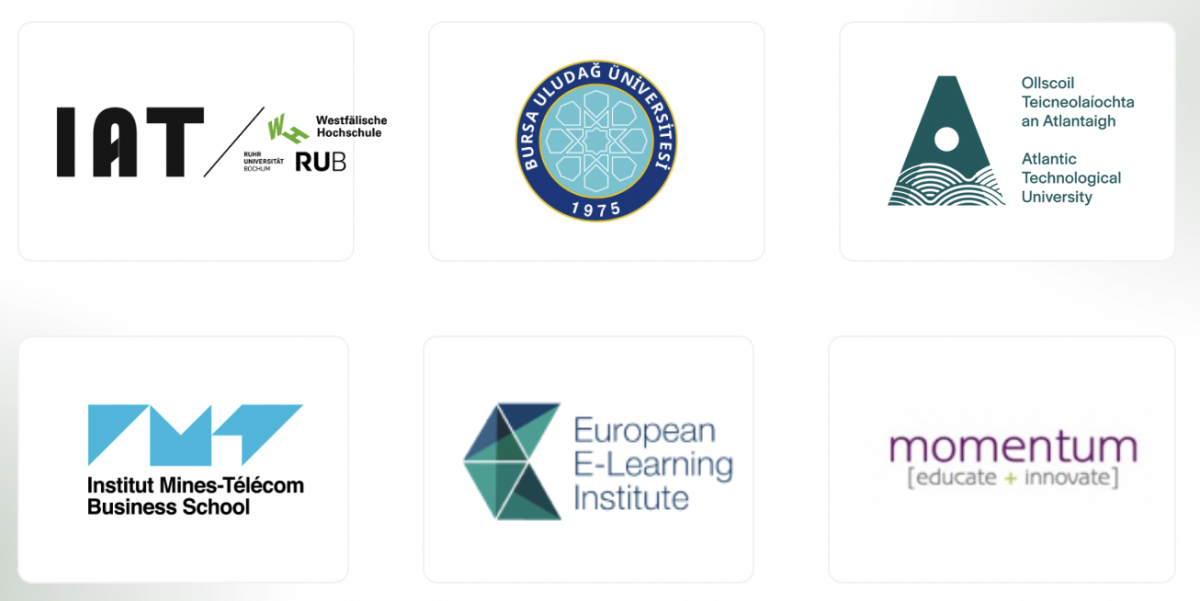
The SDS4HEI project has five work packages with associated tasks. WP1 is the project management foundation, while WP5 ensures growth, visibility, and expansion beyond the project context. WP2 focuses on developing SDS4HEI’s theoretical framework for systematically implementing sustainable development in HEIs. WP3 will create a self-assessment tool and recommendations to equip HEIs staff with sustainable development understanding. Finally, WP4 will implement SDS4HEI's teaching resources through a user-friendly MOOC, enabling teachers to integrate sustainability skills into traditional courses.
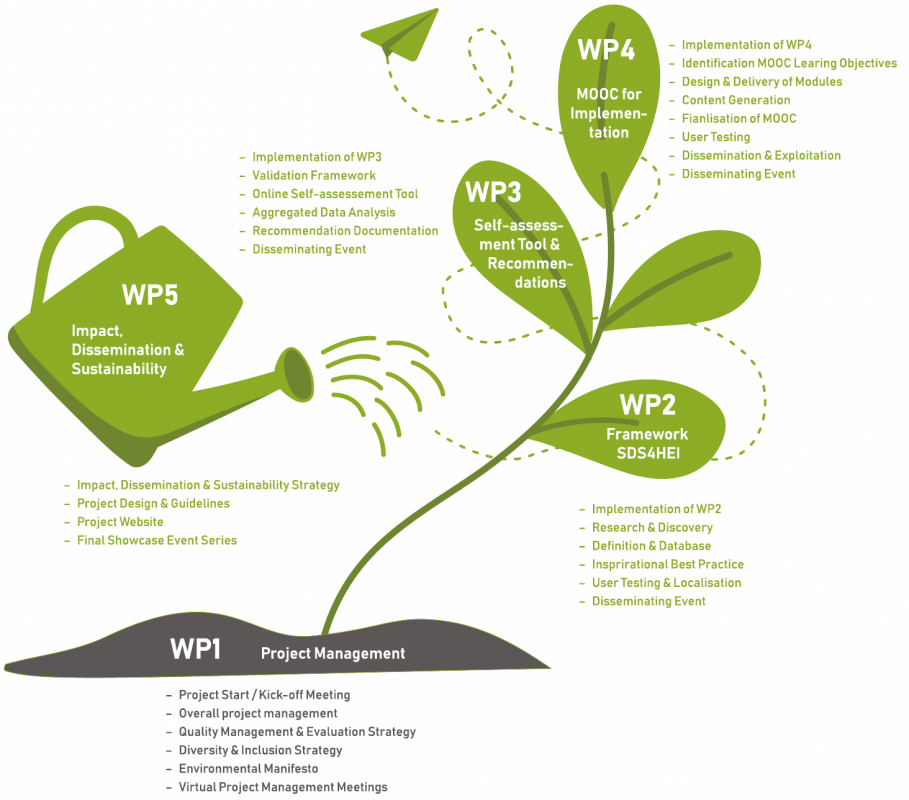
Objectives of the Project
The primary goal of SDS4HEIs is to integrate the Sustainable Development Goals (SDGs) as an integral element within the institutional visions, missions, particularly with regard to their third facet (contribution to communities and society), value statements, strategic plans, organizational culture, research, teaching, and campus practices of Higher Education Institutions (HEIs). Additionally, the initiative aims to promote the infusion of sustainability principles into the framework of educational domains, with a specific emphasis on entrepreneurship, while also encompassing disciplines such as STEM and the arts. This project aims to integrate your university into the Sustainable Development Goals by focusing more on actual innovations that transform words into action rather than mere verbal expressions.

Project Approach
The SDS4HEI project adopts a comprehensive strategy to promote the incorporation of Sustainable Development Goals (SDGs) within the European higher education framework. This strategy encompasses four key elements:
- Formulating a framework for integrating Sustainable Development practices into higher education institutions.
- Supplying self-assessment tools for validating Sustainable Development practices within HEIs, along with delivering recommendations to inspire HEI leaders to devise innovative solutions.
- Developing "Massive Open Online Courses" (MOOCs) designed for the strategic inter/transdisciplinary implementation of SDGs in HEI curricula. These courses aim to enhance students' accessibility and engagement in internationalization and entrepreneurial practices, thereby better equipping them for the demands of the global knowledge economy.
- Implementing measures for the dissemination and evaluation of the project's outcomes.
What are we already doing for SD at our HEI?
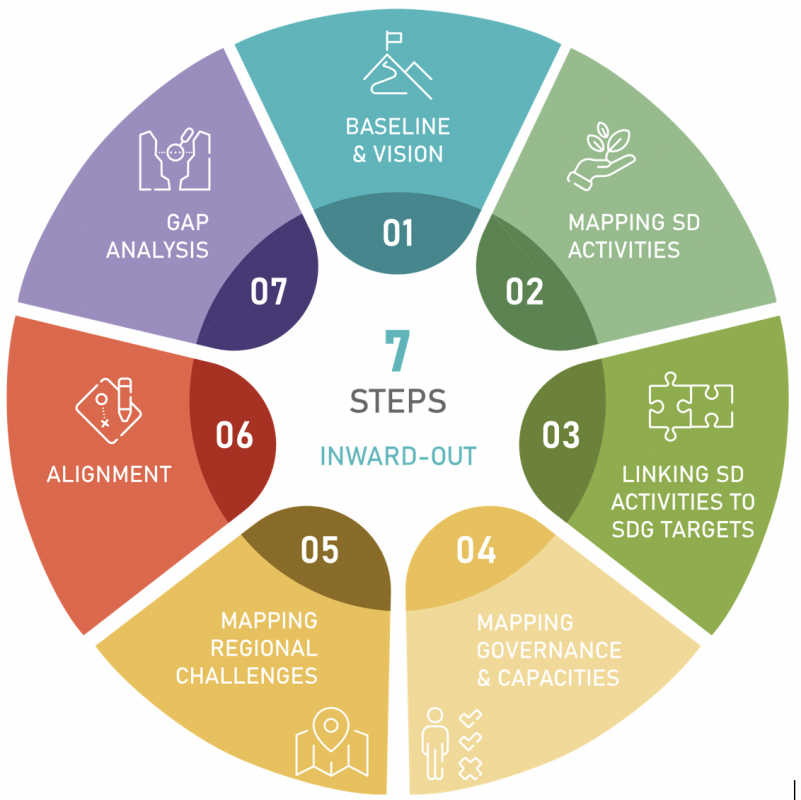
Project Activities
PROJECT RESULT 1
Framework for Sustainable Development within HEIs.
The project partners will work together to create a research-based Framework for systemically implementing Sustainable Development Strategies within Higher Education Institutes! The framework will offer engagement and entrepreneurship strategies that focus on long term sustainable development, but with actions that could be taken immediately.
PROJECT RESULT 2
Self-Assessment Tool for Sustainable Development within HEIs.
This self-assessment tool also comes hand in hand with tailored recommendations for how Higher Education Institutions can move towards their sustainable development goal in real concrete ways!
PROJECT RESULT 3
Massive Open Online Course.
The overall goal of our Massive Open Online Course is to put our teaching and learning resources into action, bringing the opportunity to offer sustainable development skills alongside traditional courses to HEI students via a user-friendly Massive Open Online Course or MOOC.
BURSA ULUDAG UNIVERSITY PROJECT TEAM

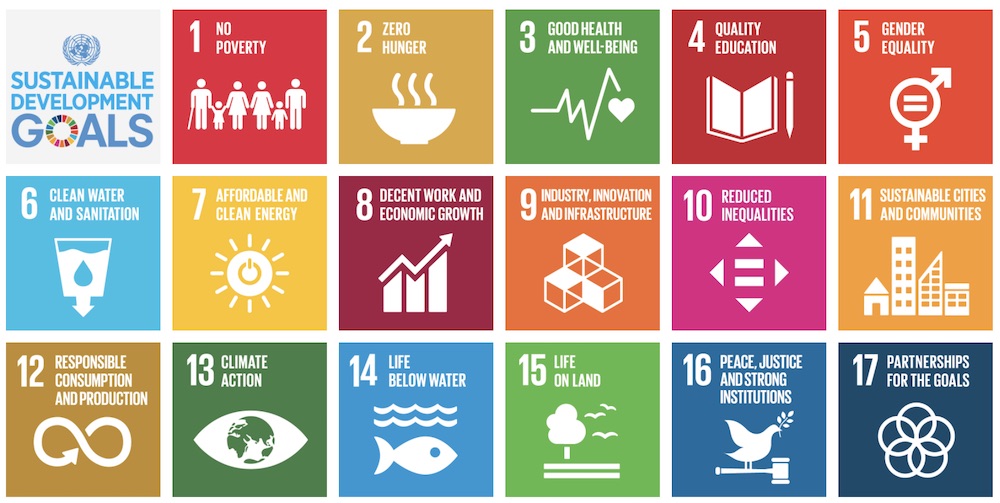 For more information,
For more information,
please visit our website:
https://sds4hei.eu/

Funded by the European Union. Views and opinions expressed are however those of the author(s) only and do not necessarily reflect those of the European Union or the National Agency. Neither the European Union nor National Agency can be held responsible for them.









 For more information,
For more information,